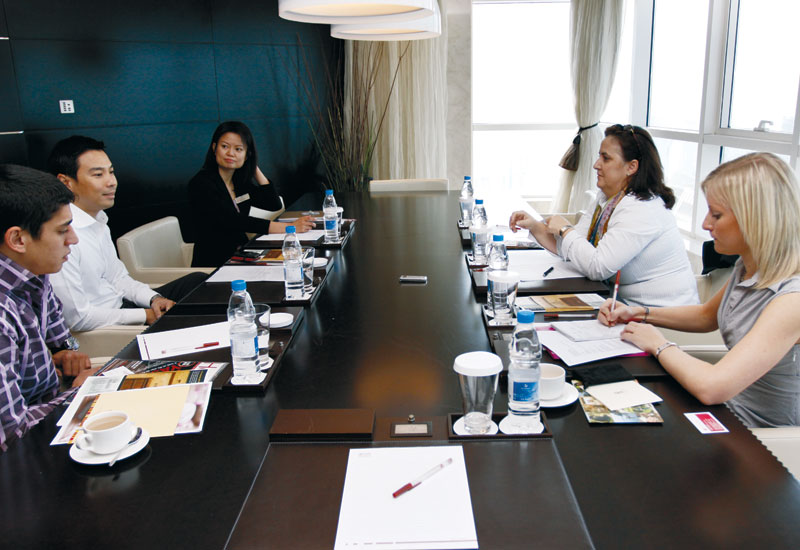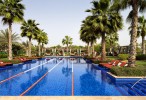Sitting high above Dubai Marina in a penthouse suite at Dubai Marriott Harbour Hotel & Suites, spa managers from the UAE and Qatar analysed relative success in 2009, debated issues such as recruitment and retail, and predicted an increased emphasis on fitness in 2010
Spas have not escaped the economic crisis unscathed, but what impact have you seen on your business specifically?
Mandy Toh: I was thinking that business in 2009 would be less than in 2008 but when we were looking at the statistics I was surprised to find that the number of guests was pretty much the same. We do see that the average spend has gone down by about 10%, but the treatment [volume] hasn’t gone down a lot.

| Advertisement |
Michael Monsod: I’ve been with the company just over a year and when I joined they’d been open a year already. The figures I have for 2009 are much better than 2008. In some cases when I break it down into recreation/fitness centre revenue over last year, it’s 300% more. I understand that definitely there is an impact on what our potential revenue would have been, but we are doing much better than last year and I think both The Palace and The Address is in a unique situation because the area that we are in is developing very nicely as a destination in itself.
We would be earning more if we look at our budgets or forecasts but we are doing better than 2008 and we are being really careful; whereas maybe people used to buy two or three products, now it’s just one.
Francisca Antunes: We are on the third year of operations, so we had an enormous growth from 2008 to 2009. We most probably lost potential but we didn’t lose in reality because we actually gained the same as Mike, 300% GOP-wise. It has been pretty impressive but business most probably would have grown much more if there wasn’t a crisis.
The way people spend changed drastically in Doha since June. In treatments we don’t notice it because it’s wellbeing, it’s health, but spend as far as retail is concerned has dropped 4%, the ratio has dropped four points. People go a lot for the packages we create much more than for one treatment. They are going for hammam and massage rather than just for hammam.
We did not have to reinvent ourselves, but we had to be a little more creative. In June, quite a lot of companies in Doha dismissed quite a lot of people — that created the fear factor, so instead of people getting spa memberships for one year they started asking us if they could get memberships for three months, so that changed.
MM: In our case July was actually our strongest month for 2009.
FA: That’s funny, mine too.
MT: Same here, July was the best month for our Timeless Spa.
Aymen Bin Ali: A lot of people didn’t travel because of the swine flu so that really encouraged a lot of local business. Our opening has been going very well so far. I’m trying to push it as hard as I can; I’m trying to get people from outside to be members because we have got a health club.
We are doing well so far with memberships and treatments; I think people are going more for massages than for full spa packages. And retail is a real challenge.
What products do you use? Do you agree retailing them is challenging?
FA: Retail is a big challenge now.
MM: For me, retail is an opportunity, you have to push it. Anyway, it’s part of guests’ home care regiment. One very good way to get them to come back is to get them to appreciate the product they are using — to get them to do that they will have to take it home and enjoy the product.
MT: I think facial products sell more than body products.
FA: Men buy a lot of body products.
AA: The best selling product here is the whitening creams, especially for face and from the GCC market.









 Search our database of more than 2,700 industry companies
Search our database of more than 2,700 industry companies









